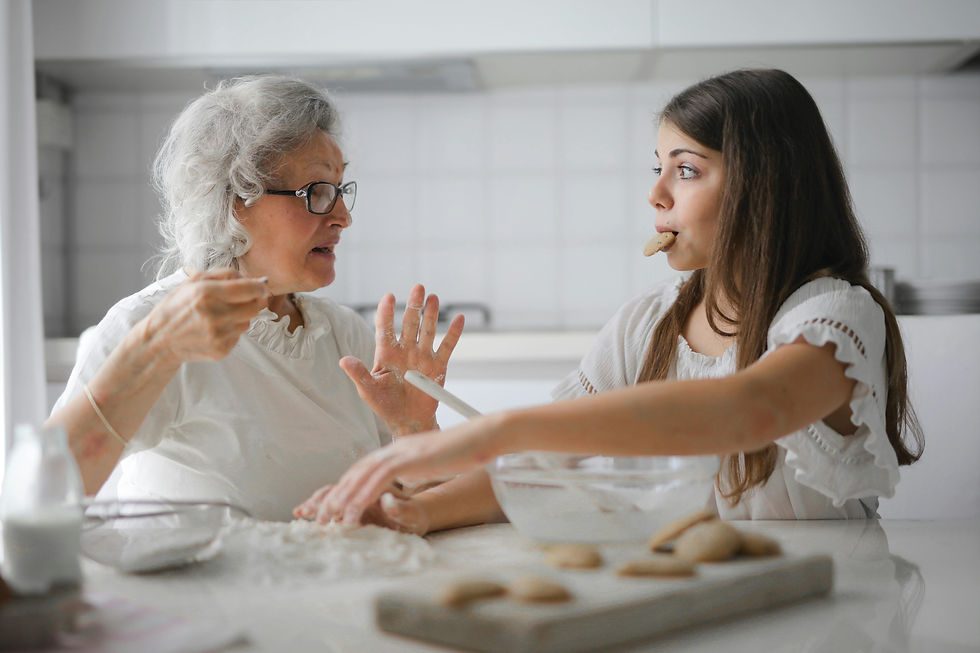Making Friends as a Grandparent
- Aug 2, 2022
- 3 min read
Updated: Oct 7, 2022
Making friends as a grandparent is a process that starts from the minute your Grand is born. Choosing to build in the concept that one day you’ll be adult friends, adds an intentional dimension to grandparenting that is a GPAZ foundation. We plan for the long term!
How do we prep for adult friendship when connecting with young ones? It’s really very simple. We talk about it. We teach them what friendship is. We build trust along the way.

Tips for Making Friends as a Grandparent
Talk about it. Children are dreamers by nature, especially if unspoiled by mean or insensitive adults. They have great imaginations and think a lot about what things will be like when they grow up. They plan for the cars they’ll drive and the jobs they’ll hold. We can work together with these intrinsic imaginative characteristics of children and plant seeds for the adult relationship we hope to have with them. We might occasionally drop comments like, “When you’re all grown up and I’m older and my hair is all gray, we can do ________ together.” Or maybe, “You’re so good at your studies, I can’t wait to see what you do when you grow up. I’m going to enjoy spending time with you and learning about all the things you do on your job.” These simple conversations build an understanding that this is a long-term relationship they can be confident in.
Teach them about friendship. Straightforward teaching about friendship is perhaps the best way to become their friend as they grow. We can teach them to respect family members, be confident in the family’s desire to be lovingly together, and about compassion among both family members and friends. Teaching them about valuing honesty in relationships will serve so well as they reach outside the family circle for friends. Giving them time to express themselves and their likes and dislikes will teach them that you value who they are as a person making it easier to look toward you being their grandparent AND friend.
Teaching Grands the boundaries of friendship is important, too. For example, you want your Grands to trust you and be comfortable coming to you with questions and concerns. You also want them to have confidence in how you will handle conversations when they do.
Mocking, dismissing, or breaking confidences will clearly run the risk of losing their trust. But there may be times when you may feel a parent needs to know of a potential crisis. Prepare Grands for this possibility early by sharing how friendship may mean intervening during a crisis. Illegal activities, dangerous activities, abusive people in their lives – all of these types of situations might warrant opening a conversation up to a parent. For them, it might mean going to a parent, teacher, or another authority figure when a contemporary shares something of concern. Prepping Grands ahead of time to understand that friends care about each other and protect each other is critical. Remain open to helping a Grand share difficulties that might arise when they are young adults. Teach them this is a true expression of love, not a break in friendship.
Build trust. As key adults and authorities in our grandchildren’s young lives, we have years to build trust in our relationship with them. Work at it. Be consistent. Be present. Be interactive. I’ve never bought into the comment that “children should be seen and not heard.” Do children need to learn boundaries, rules, morality, and good behavior? ABSOLUTELY! But there’s so much joy in training up young ones and watching them blossom into adults.
Interacting consistently and building the trust that forms a basis for an adult friendship leads to a great reward in our age, with both our children and our grandchildren.




Comments